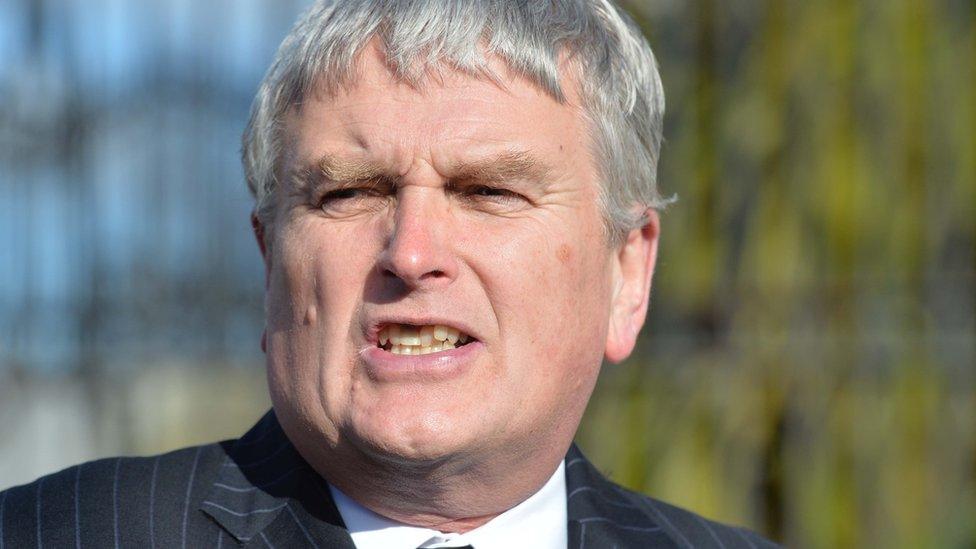Challenging gender norms: Bristol is a city where 'difference is encouraged'
- Published
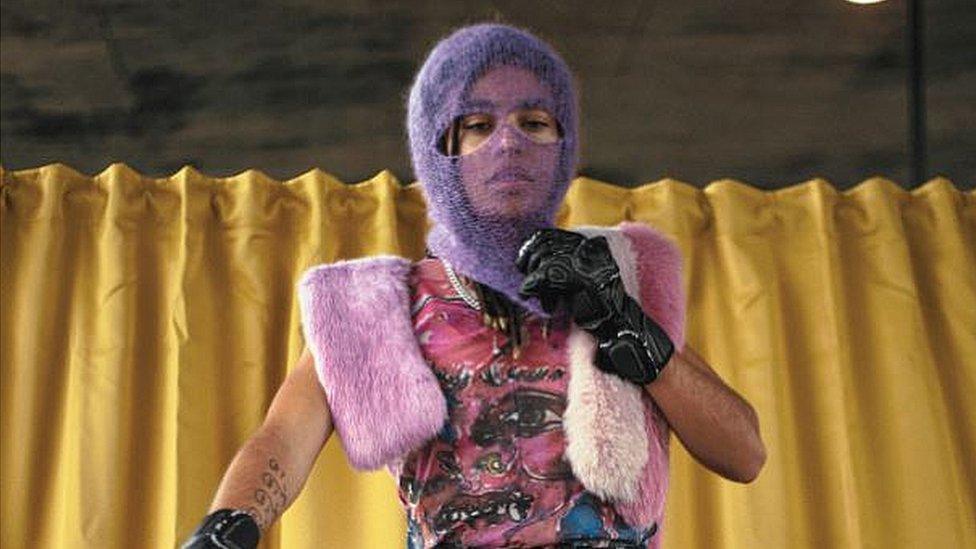
Grove said difference is 'encouraged' in Bristol
Bristol has a reputation as a diverse, creative city where "difference is encouraged".
Many people who work in the creative industries say they feel accepted in the city, and are able to express themselves freely.
To mark Bristol Pride - one of the UK's biggest Pride events - three artists who are challenging gender norms and perceptions of the lesbian, gay, bisexual, transgender, queer, questioning and ace (LGBTQ+) community tell their story.
'Friends mis-gendering me'
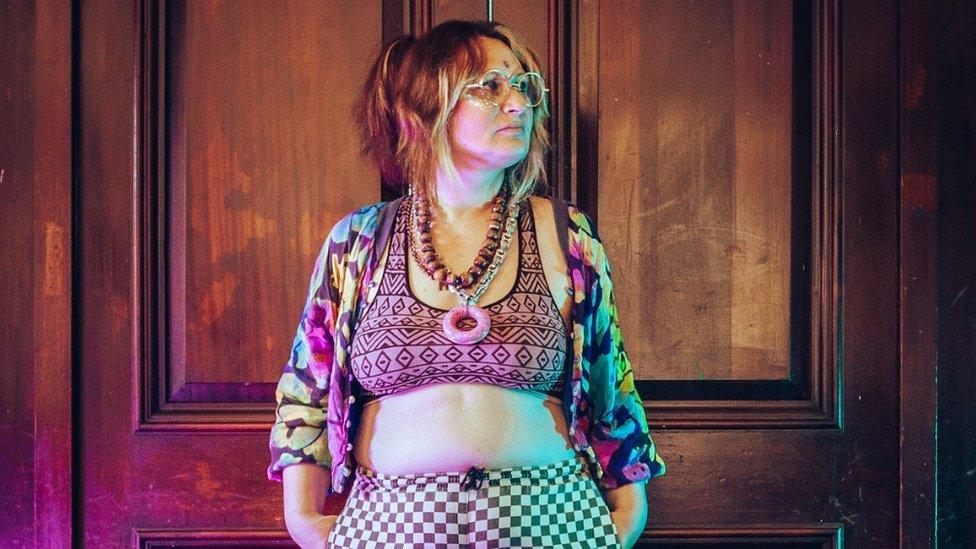
Mandi said they loved being able to influence and educate people through their music 'on what it's like to be transgender or to be queer'
Bristol-based music producer Mandidextrous (Mandi) has been a DJ since 1998 and was initially known as Andy.
"I started to realise as a teenager I was different. I didn't want to go through life as male," they said.
Mandi went through their transition from male to female when they were already known on the rave scene.
"They saw me transition. I've never been private about it," they said.
"It was kind of awkward at first - a lot of my friends mis-gendering me and mis-naming me - but as time's gone on, and I've moved cities, it's become a lot easier.
"It's always been very accepted on the rave scene actually - it's a very special place.
"I create this music that people get into and then they find out that I'm transgender. It's definitely helped change views.
"Pride to me as an artist is really, really important. Just that there is a celebration of our genders, of our sexualities."
View gender and sexuality 'like a circle'

Grove is a singer, rapper and producer from Cheltenham, now based in Bristol and prefers not to identify as specifically male or female
Grove, who identifies as gender-queer, released their debut EP Queer + Black in February, tackling themes of race, politics and sexuality.
They said while growing up in Cheltenham it was difficult to explore their identity.
Grove said: "I'd met two queer people of colour and I'd dated one of them.
"Bristol has got a lot less limitations, there's a lot more diversity and difference is encouraged."
Grove said some generations would see the term "queer" as offensive, but "as these things go, people like to reclaim words that were previously used in a derogatory sense and reinterpret that in our own vision so we get to control what that word means".
They added: "I think it's really good to view things like gender and sexuality more like a circle.
"If there is something you don't understand, have a conversation with someone about it. Conversations are the things that connect humans in the best way."
'Find the courage to be yourself'
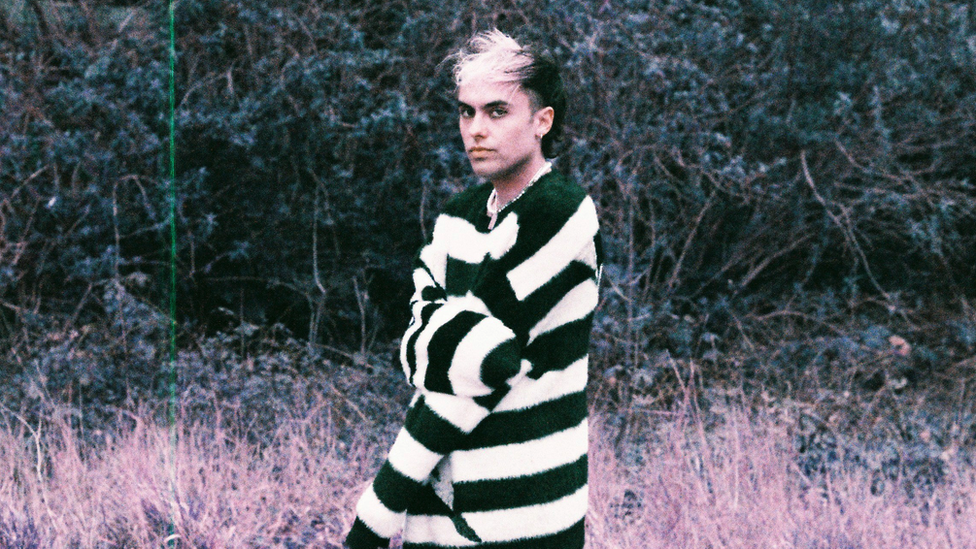
"I think Bristol is slightly different in an amazing way from some cities in that it does feel very liberal and accepting of people of all kinds," said Keir
Singer Keir grew up in Corsham, Wiltshire, before moving to Bristol to study at the British and Irish Modern Music Institute.
Following his latest single, Boys Will Be Girls, Keir said he has had "so many people sending pretty dark and deep stories about overcoming prejudice".
"I realised it felt like a message to me or anyone else to try to find the courage to be yourself, because life's too short not to."
The music video shows Keir dancing in a dress in a Bristol park.
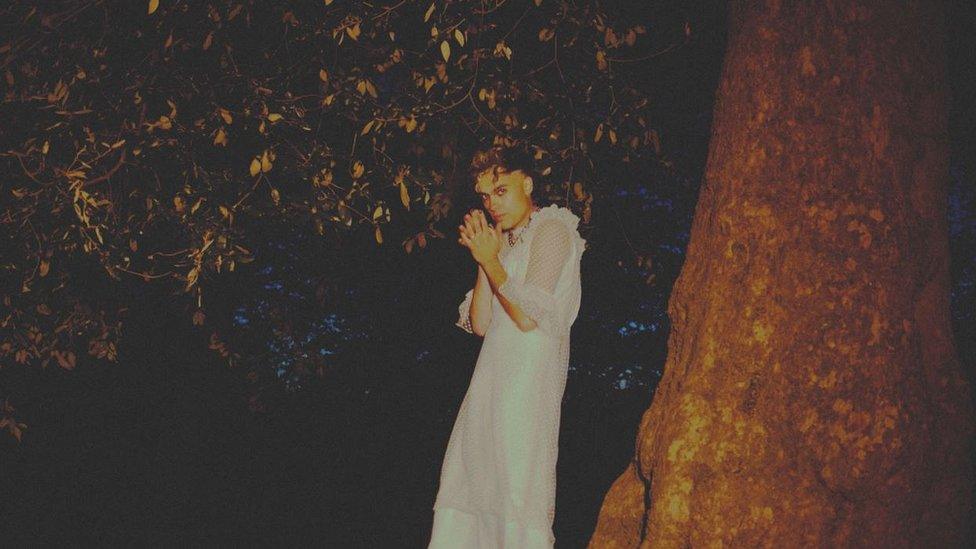
Kier said: "I love wearing dresses and it had been a couple of years since I've felt comfortable or brave enough to wear a dress in public"
During the video shoot some teenagers shouted at Keir, which he initially interpreted as abuse. But they were actually calling "can we be in it?"
The boys ended up in the video, with one announcing he wanted to get a dress afterwards.
"It's so inspiring when something small like a three-minute pop music can create some sort of dialogue about how to deal with homophobia," added Keir.

Follow BBC West on Facebook, external, Twitter, external and Instagram, external. Send your story ideas to: bristol@bbc.co.uk , external
- Published9 July 2021
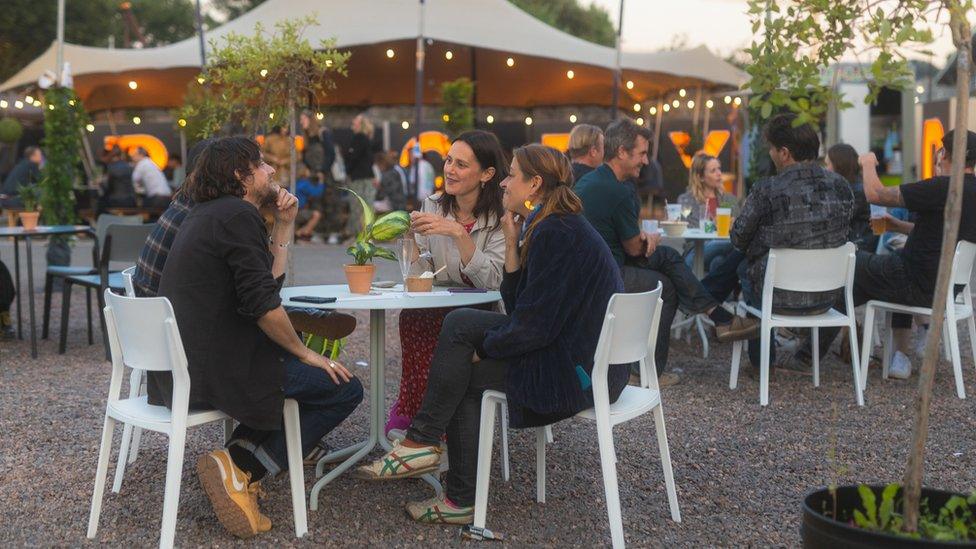
- Published4 July 2021
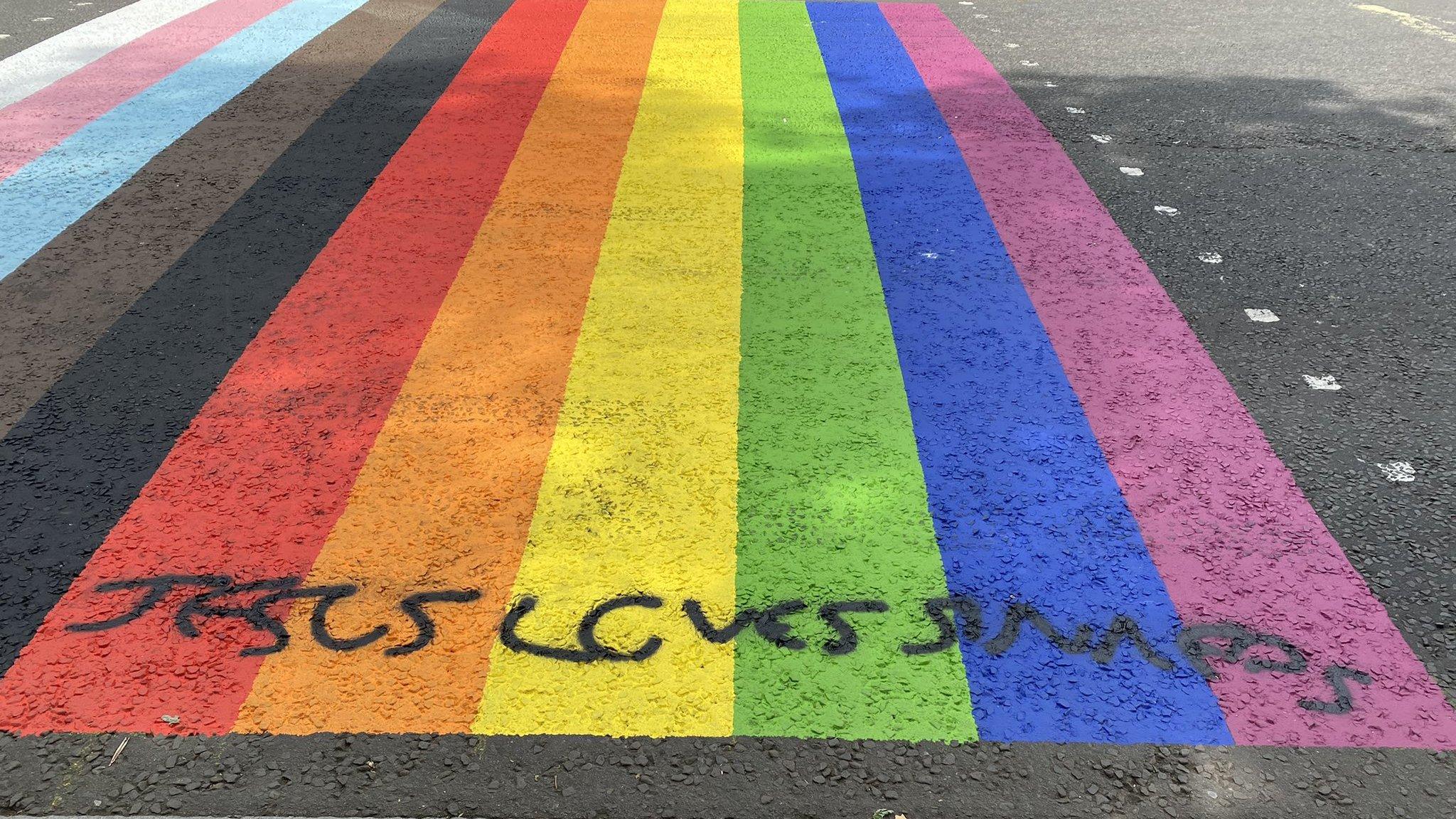
- Published2 July 2021
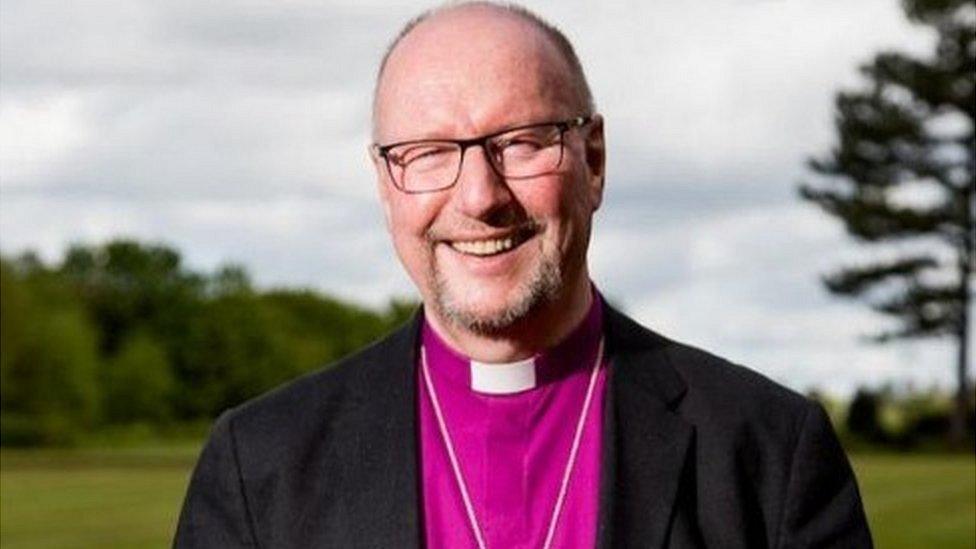
- Published2 July 2021
